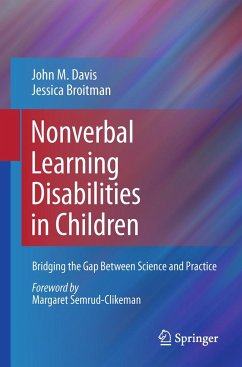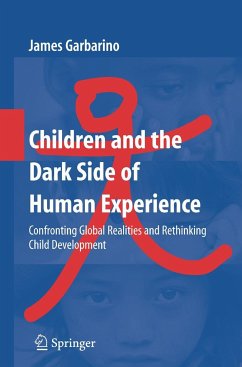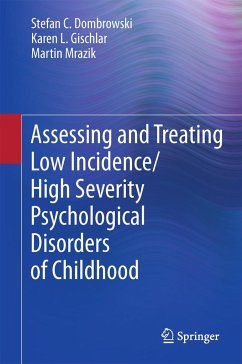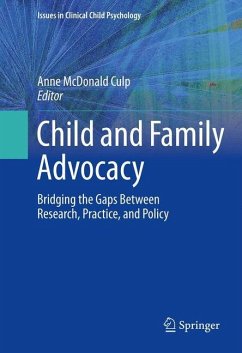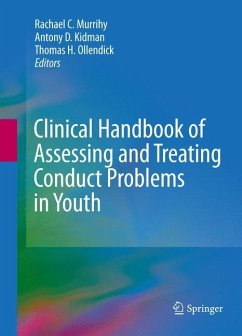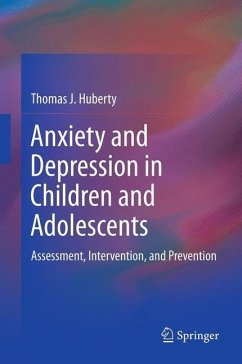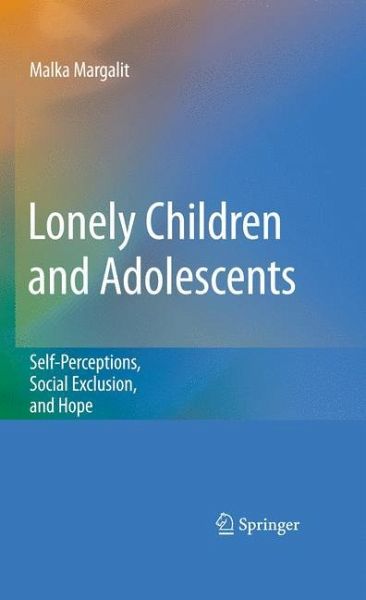
Lonely Children and Adolescents
Self-Perceptions, Social Exclusion, and Hope
Versandkostenfrei!
Versandfertig in 6-10 Tagen
38,99 €
inkl. MwSt.
Weitere Ausgaben:

PAYBACK Punkte
19 °P sammeln!
From texting and social networking sites to after-school activities, young people have many opportunities to interact with one another, and yet loneliness and isolation trouble today's youth in increasing numbers. Many children and teens report feeling lonely even in the midst of family and friends, and childhood loneliness is a prime risk factor for adult alienation.Lonely Children and Adolescents: Self-Perceptions, Social Exclusion, and Hope illuminates seldom-explored experiences of social isolation among young people as well as the frustrations of the parents and teachers who wish to help....
From texting and social networking sites to after-school activities, young people have many opportunities to interact with one another, and yet loneliness and isolation trouble today's youth in increasing numbers. Many children and teens report feeling lonely even in the midst of family and friends, and childhood loneliness is a prime risk factor for adult alienation.
Lonely Children and Adolescents: Self-Perceptions, Social Exclusion, and Hope illuminates seldom-explored experiences of social isolation among young people as well as the frustrations of the parents and teachers who wish to help. This groundbreaking book conceptualizes loneliness not simply as the absence of social connections, but as a continuum of developmental experience, often growing out of the conflict between opposite needs: to be like one's peers yet be one's unique self. The author draws clear distinctions between loneliness and solitude and identifies genetic and environmental characteristics (i.e., social, psychological, familial, and educational) that can be reinforced to help children become more resilient and less isolated. In addition, therapeutic approaches are described that challenge loneliness by encouraging empowerment, resilience, and hope, from proven strategies to promising tech-based interventions.
Highlights include:
- Developmental perspectives on loneliness.
- Schools and the role of teachers, from preschool to high school.
- Peer relations (e.g., cliques, bullies, exclusion, and popularity).
- Lonely children, lonely parents: models of coping.
- Loneliness in the virtual world.
- Prevention and intervention strategies at home, at school, in therapy.
Asking its readers to rethink many of their assumptions about social competence and isolation, this volume is essential reading for researchers and professionals in clinical child, school, developmental, and educational psychology; alliededucation disciplines; social work; and social and personality psychology.
Lonely Children and Adolescents: Self-Perceptions, Social Exclusion, and Hope illuminates seldom-explored experiences of social isolation among young people as well as the frustrations of the parents and teachers who wish to help. This groundbreaking book conceptualizes loneliness not simply as the absence of social connections, but as a continuum of developmental experience, often growing out of the conflict between opposite needs: to be like one's peers yet be one's unique self. The author draws clear distinctions between loneliness and solitude and identifies genetic and environmental characteristics (i.e., social, psychological, familial, and educational) that can be reinforced to help children become more resilient and less isolated. In addition, therapeutic approaches are described that challenge loneliness by encouraging empowerment, resilience, and hope, from proven strategies to promising tech-based interventions.
Highlights include:
- Developmental perspectives on loneliness.
- Schools and the role of teachers, from preschool to high school.
- Peer relations (e.g., cliques, bullies, exclusion, and popularity).
- Lonely children, lonely parents: models of coping.
- Loneliness in the virtual world.
- Prevention and intervention strategies at home, at school, in therapy.
Asking its readers to rethink many of their assumptions about social competence and isolation, this volume is essential reading for researchers and professionals in clinical child, school, developmental, and educational psychology; alliededucation disciplines; social work; and social and personality psychology.






